12th & Chicon
For many years I worked on an AIDs outreach van at the corner of 12th & Chicon in East Austin. The corner was the highlight of our week, with an ever-changing parade of people and activities that could at minimum be called “lively”. It served as the heart of drug dealing and prostitution, as well as a quiet residential area of historically Black-owned homes. Today, gentrification has accomplished what police raids and community planning couldn’t–12th & Chicon has once again become a shopping and social district. But today the crowds tend more toward white and hipster than black and poor. This essay was done during the last days of what I believed would always be the reality of 12th & Chicon.
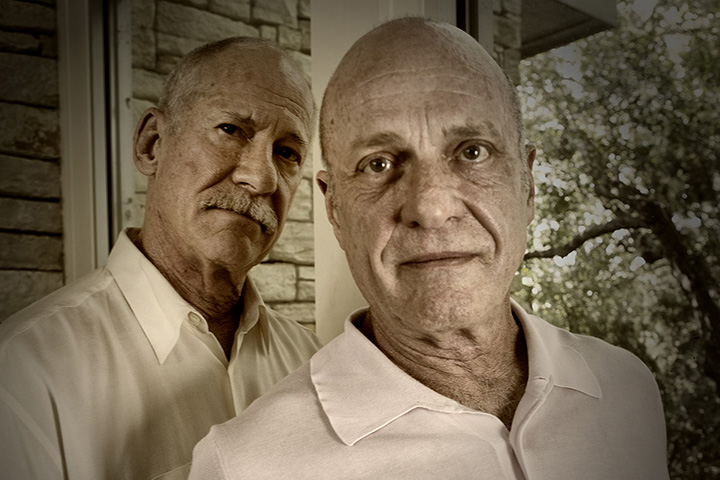
Long-Term AIDs Survivors
AIDs was the defining event in the lives of gay people of a certain age. From the scare of not knowing what was happening, through the deaths of the plague years, to newer treatments and services, I was curious about the lives of people who survived the plague, and now live with HIV as a normal way of life.

Quinciñeras take on the Texas State Capitol
One of the smartest demonstrations in a season of demonstrations at the Texas State Capitol has been the Quinciñearas’ takeover of the Capitol in July of 2017. Fifteen fifteen year-old Latinas in prom dresses danced, sang, spoke and lobbied against the “show me your papers bill”, SB4, at the Texas Legislature. It brought excellent coverage and a new perspective to the arguments over immigration.
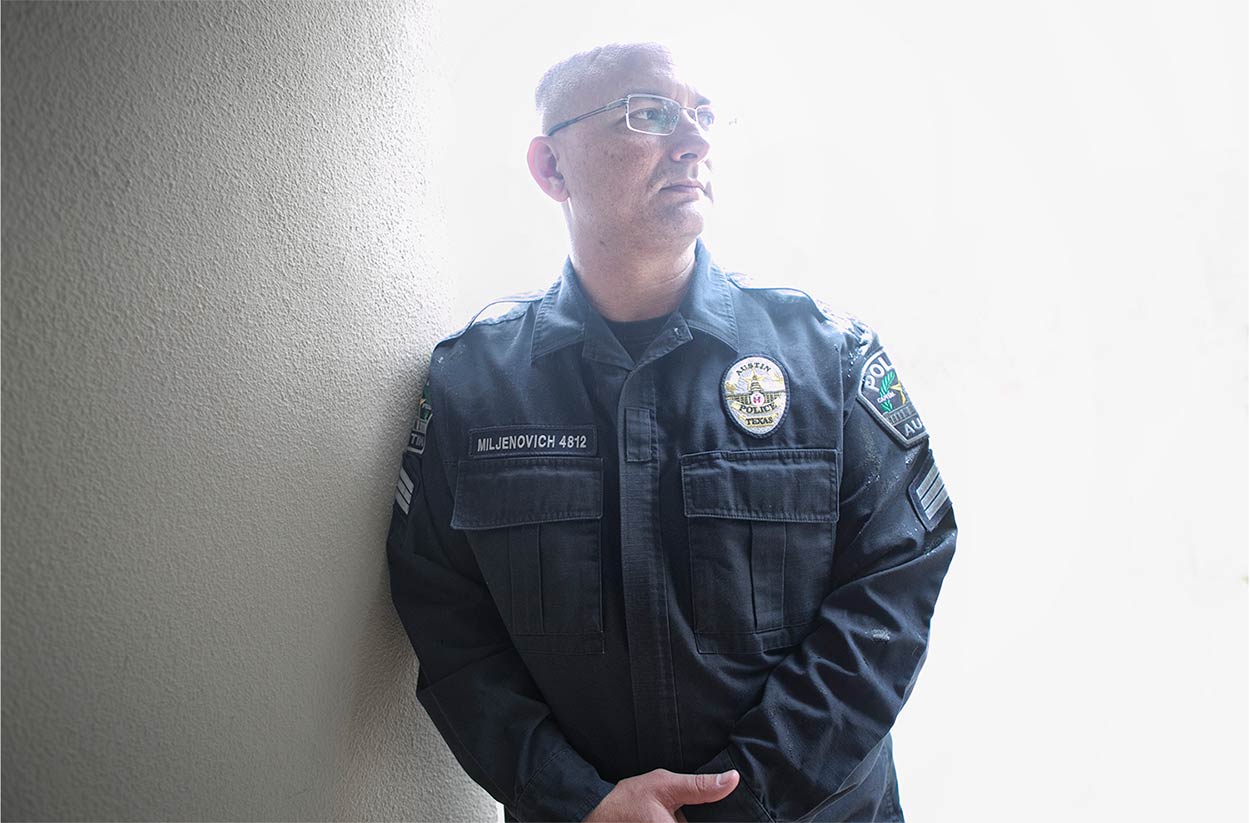
Workers Combatting Human Trafficking
As part of an on-going project, I have been producing portraits of the people who work together to fight human trafficking in my city. This includes activists, survivors, and police and court officials.
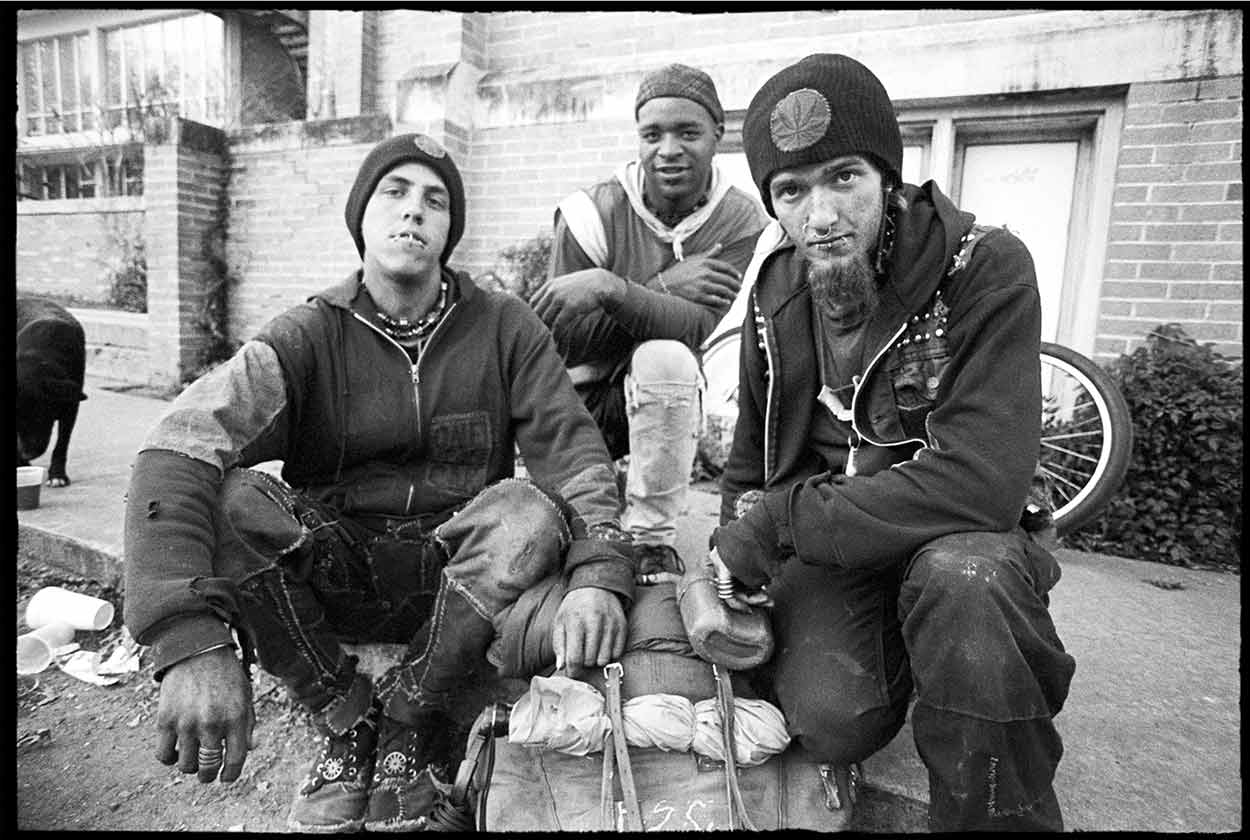
Street Kids
Another community which has fascinated me is the traveling gutter punks, or street kids, who populate The Drag, the area across the street from the University of Texas campus. These kids were like the opposite of those across the street: they rarely worked, except to sell drugs; had no home by choice, living on the streets or squatting in abandoned buildings; travelled extensively, hitchhiking or hopping trains; and created a small, insular culture in which freedom was the only real value. They often died young.
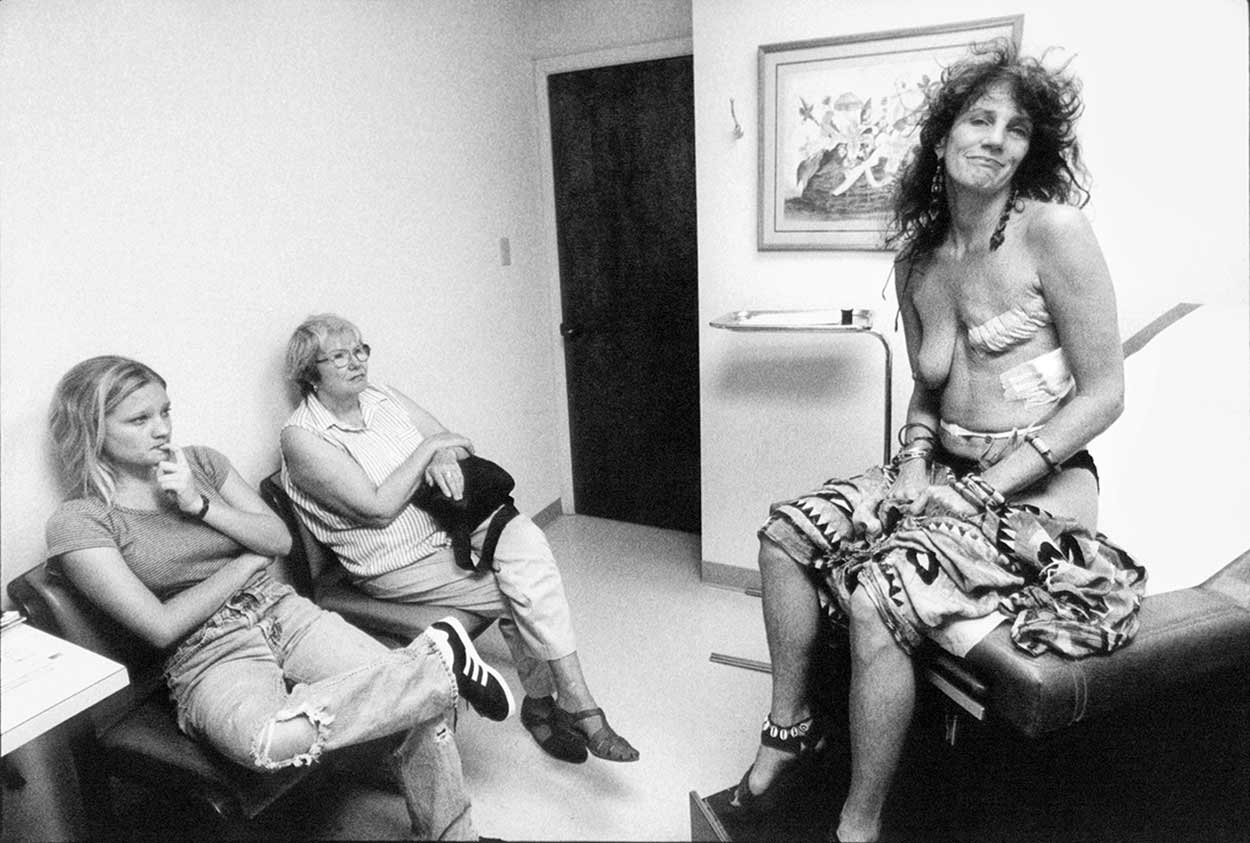
Gaila’s Breast Cancer
I was contacted by a friends who’s closest friend had just been diagnosed with breast cancer. Did I want to document her journey? I did.
So I met Gaila and followed her through her first stages of medical intervention: diagnoses, testing, surgery. She then opted not to follow Western medical practice, and use natural methods of treatment. She also chose to do that in private, without a camera present. This is from our time together.
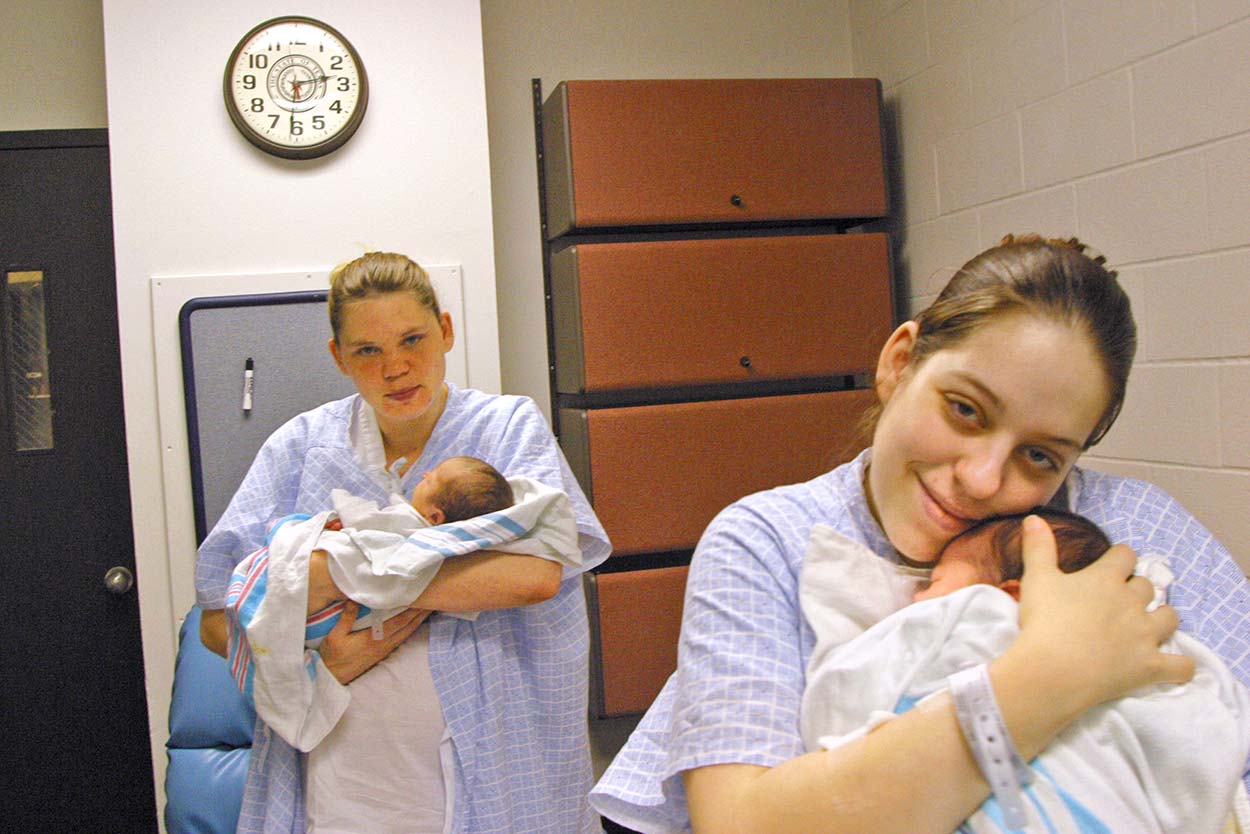
Prison Moms
In Texas, women who give birth while incarcerated have very little time with their newborn babies. For three days following the birth, the mothers are allowed to spend one hour a day with their child. After three days the babies are sent home to the family or placed in foster care. This is one of those one-hour visits.
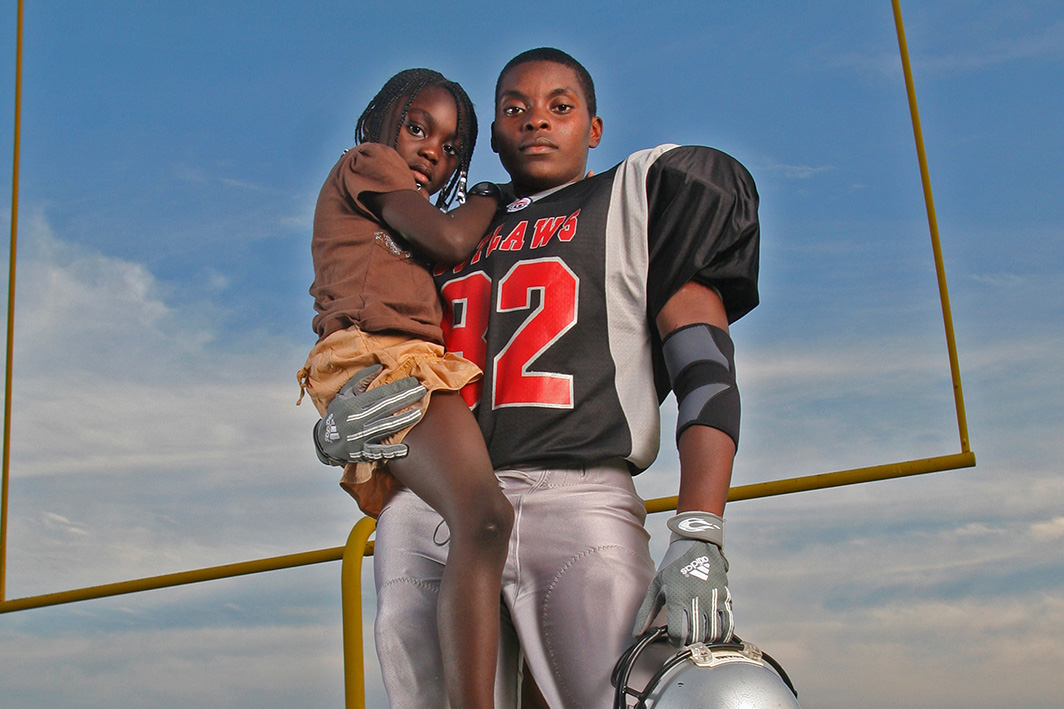
Women’s Professional Football: The Austin Outlaws
Austin had it’s first professional football team in a surprising form: women’s football. This is a game in their first season.
